A Primer on Education in Peru
by Peru Country Manager Daniel Salazar
When we think of the benefits of education, we can probably quickly mention the development of intellectual abilities, freedom of thought, and the increase in productivity. So education is valuable in itself (for the sake of knowledge), but also for the benefits it produces (it makes a person freer or more employable). That is why education is so important for everyone. But, in such a globalized and competitive world, this especially true for the young. Hearing about High-school dropout rates and rising college tuition costs in the U.S. one could think that education prospects are growing dimmer for the coming generations. But this is especially true and even sadder in one of the worst educational systems in the continent, that of my country: Peru.
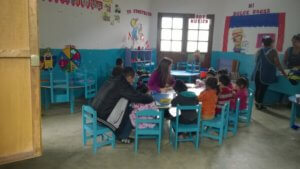
Volunteer helping at a Pre-K in Alto Progreso, a shanty town in Lima where Global Volunteers serves.
How good is education in Peru?
In the last education assessment carried out by the Organization for Economic Cooperation and Development (OECD) in 65 countries, Peru came in last place. Specifically, Peru ranked last in reading comprehension, math and science. In plain terms, Peruvian children who go to public schools (about 70%), barely learn how to read and do simple mathematical operations. This does not shock me. I was shocked, however, when I was about 10 years old and got the chance to compare what I learned at a private school with what my friends learned at public school. I remember telling my parents “they barely know how to add.”
Snaphot of performance in mathematics, reading and science |
||||
| Place | Country | Math | Science | Reading |
| OECD Average | 494 | 496 | 501 | |
| 1° | Shanghai-China | 613 | 570 | 580 |
| 2° | Singapore | 573 | 542 | 551 |
| 3° | Hong Kong-China | 561 | 545 | 555 |
| 36° | United States | 481 | 498 | 497 |
| 65° | Peru | 368 | 384 | 373 |
|
Source: OECD PISA Evaluations** |
||||
Of course this is not true for all public schools in Peru, and we should also consider that Peru has been making great improvements since the OECD statistics came out in 2013. But it is true for most children in Peru. And I know for a fact that even some internal statistics showing progress are skewed, as some teachers tell lower-achieving children to stay home while bringing children from higher grades to class on assessment days. With this in mind, one could wonder about the higher education prospects of these children, or the quality of higher education in Peru. That is another story, which I will write about soon.
How to improve education in Peru
Now let’s talk about ways to fight this. The government can certainly help, but it has not done much in the last 195 years, or, as the statistics show, they are doing something wrong. How can I help then? Certainly I cannot solve the educational problems of a nation, but I can help some children. Many studies establish the benefits of psychosocial stimulation on cognition and education.* This effect would be greater on children who don’t usually receive this kind of stimulation. Global Volunteer works at the largest children’s home facility in Peru providing psychosocial support to orphans or victims of abuse and neglect. We continually send teams who play, talk, and give attention and love to these children. Volunteers also teach them English, tutor them, or help them with therapy. Once a child is given attention, love, and affirmation, he believes he matters. This does not solve the educational problem, but gives the child a chance to go to class believing he can learn and achieve anything, just as you and me.
You can be part of the change! Volunteer to help improve education in Peru – volunteer on a Global Volunteers Peru Program.
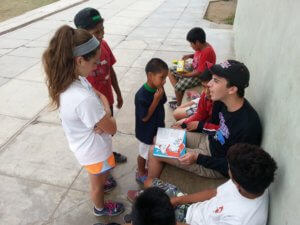
Volunteers reading to children at PPA, an orphanage in Peru where Global Volunteers serves.
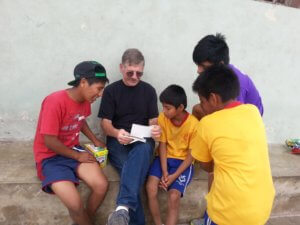
Global Volunteer teaching english to children at the PPA orphanage in Peru.
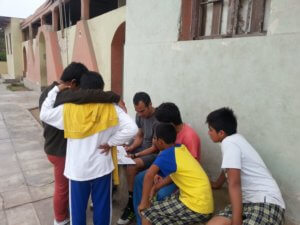
Global Volunteer reading to students in English and Spanish in Peru.
* See for instance:
Grantham-McGregor, S., Cheung, Y. B., Cueto, S., Glewwe, P., Richter, L., Strupp, B., & International Child Development Steering Group. (2007). Developmental potential in the first 5 years for children in developing countries. The lancet, 369(9555), 60-70.
Walker, S. P., Chang, S. M., Powell, C. A., & Grantham-McGregor, S. M. (2005). Effects of early childhood psychosocial stimulation and nutritional supplementation on cognition and education in growth-stunted Jamaican children: prospective cohort study. The Lancet, 366(9499), 1804-1807.
**PISA, O. (2012). Results in Focus: What 15-year-olds know and what they can do with what they know. 2014-12-03]. http:////www, oecd. org/pisa, /keyfindings, /pisa-2012-results-overview, pdf.

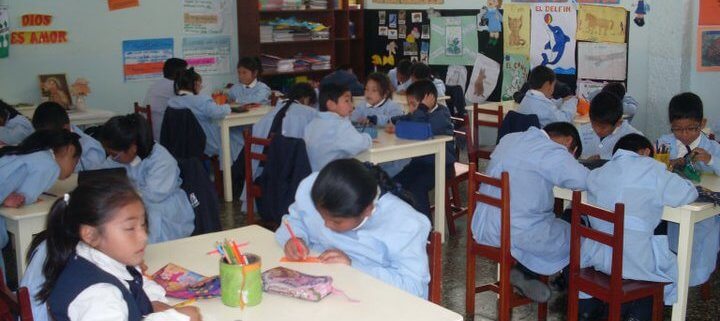
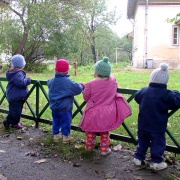
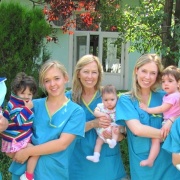
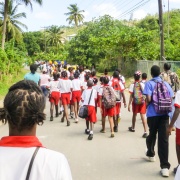
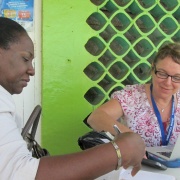
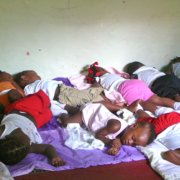
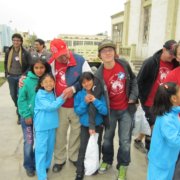
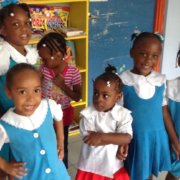
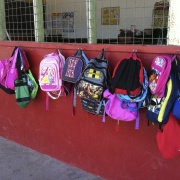


Leave a Reply
Want to join the discussion?Feel free to contribute!